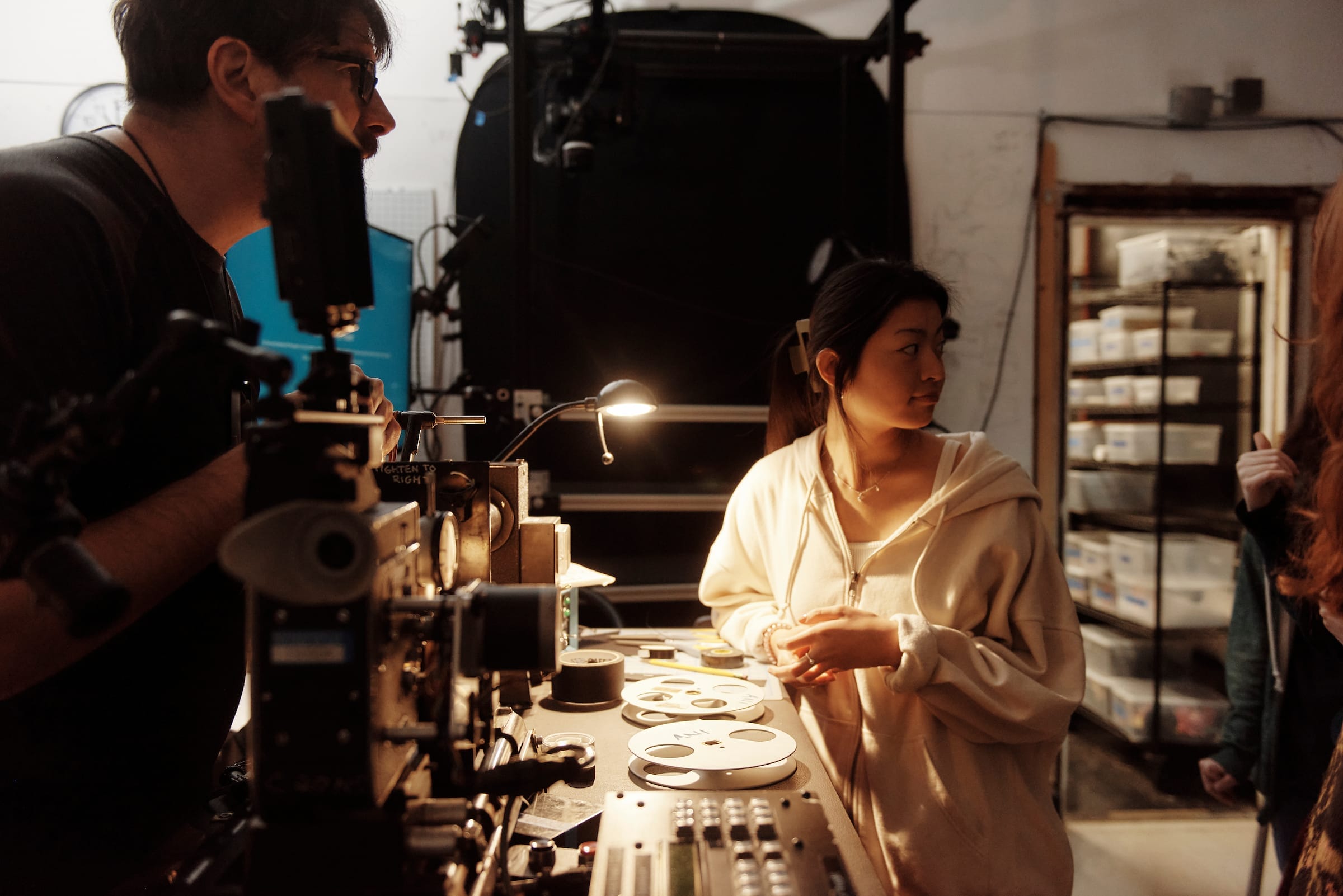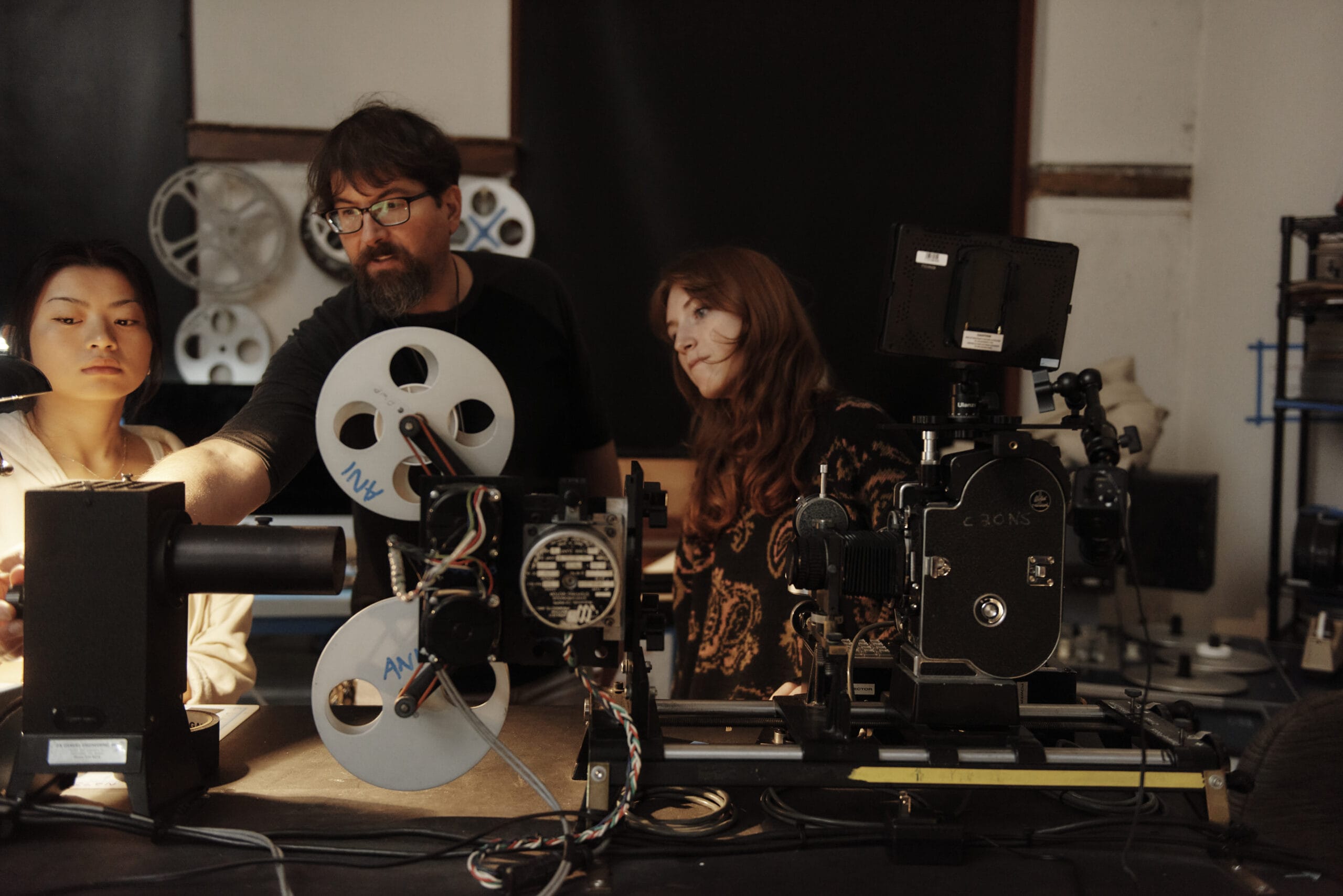

Our Animation students have access to both analog and digital technologies, allowing exploration and discovery that informs their artistic vision, voice and direction.
Learn moreMassArt’s Animation Department prepares BFA students to enter the world of professional animation, while encouraging experimentation and innovation.
Location: On Campus (Boston)
Format: In-person, Full Time
Length of Program: 4 years
Degree Awarded: Bachelor of Fine Arts in Animation
As an Animation major at MassArt, you’ll receive a cutting-edge education in the field of animation that balances technique and skill with creativity and innovation. You’ll be encouraged to take risks, work collaboratively, and think about your work within broader historical, social, and cultural contexts.
The Animation program at MassArt exposes students to a wide range techniques, including stop-motion animation.Video: Danny White ’17 BFA Film/Video

You’ll begin with assignments that emphasize building technical skills while also encouraging inventive and experimental work, right out of the gate. As you dig into your own projects, you’ll master production efficiency, learn organizational structures, practice creative problem solving, and develop flexibility. While building these foundational skills, you’ll also learn how to teach yourself new techniques – a critical skill for any successful animator.
As students produce original work, they will also work hard at revision and take part in group critiques. Here, you’ll be part of a tight-knit community of Animation students and faculty who are excited to see you take your work to the next level.
Students who complete the Animation BFA program are expected to be able to demonstrate the following learning outcomes in addition to our College-wide Learning Goals.
Students learn the production skills needed to become a professional animator, which include technical proficiency, organizational structures, and ongoing development of self-education, or learning how to learn.
Students develop a creative process that involves risk-taking, intuition, collaboration, originality and the art of revision as it applies to animation.
Students engage in extensive critiques of various methods as an integral part of learning through engaged participation, reflection, and subsequent action.
Students situate their studio practice in the historical, social and cultural contexts within and surrounding animation.
When you finish your degree, you’ll be well-prepared to work as a professional animator, or apply your skills as a practicing artist or designer. Our graduates go on to work in film, television, advertising, gaming, interactive media, and other fields.
Animator, Character Animator, Storyboard Artist, Director, Creative Producer, Game Designer, Asset Artist, Visual Effects & Motion Graphics, Stop Motion Fabricator, Art Director
Harmonix (Epic Games), FableVision, Planet Nutshell, Hero4Hire, Black Math
Adventure Time, Rick and Morty, Big City Greens, Later Alligator, Nickelodeon, Disney TV, Warner Bros. Animation, Netflix, Titmouse, Epic Games, Harmonix, Laika Studios, Storm8, Fablevision


Our Animation students have access to both analog and digital technologies, allowing exploration and discovery that informs their artistic vision, voice and direction.
Learn more